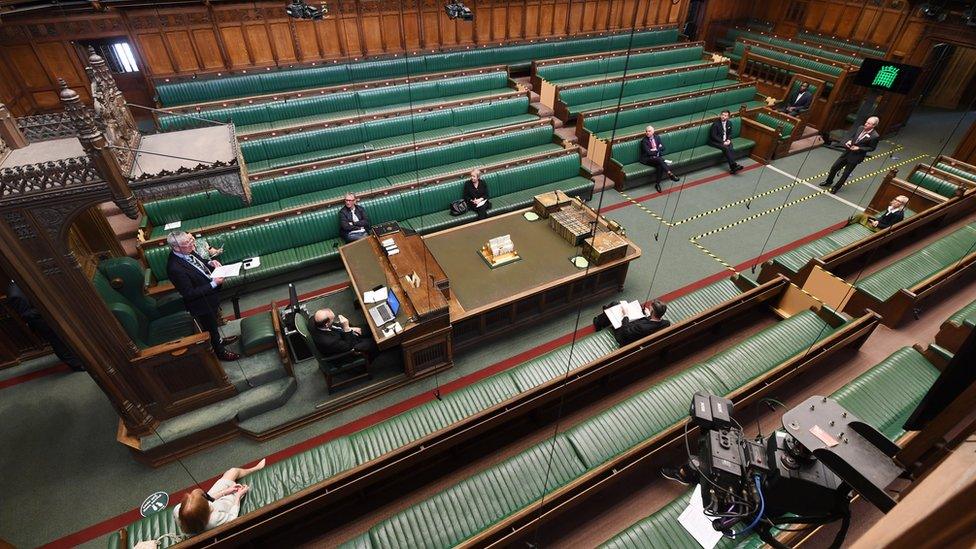Tory MP accused of rape will not return to Commons in September
- Published

Parliament is on recess, with MPs set to return on 1 September
A Conservative MP accused of rape has agreed not to return to the Commons until after his bail date in November.
The party said the former minister would instead work from home when other MPs return from recess on 1 September.
The man in his 50s was arrested on 1 August on suspicion of four separate incidents, involving allegations of sexual offences and assault.
His party faced calls to suspend the MP, but Chief Whip Mark Spencer said it was for the police to investigate.
The Mayor of London's Victims' Commissioner, Claire Waxman, criticised the decision to allow the MP to work remotely, saying he should not have contact with constituents while being investigated.
The Metropolitan Police confirmed on Sunday it had extended the former minister's bail until the middle of November.
The force said its investigation was being carried out by the Met Central Specialist Crime, Complex Case Team (CCT).
'Serious allegations'
The Sunday Times, which first reported the story, external, said the complainant alleged the MP, who has not been named, assaulted her, forced her to have sex and left her so traumatised that she had to go to hospital.
The newspapers said the allegations had been made by an ex-parliamentary employee.
The Met Police said it had launched an investigation after it received allegations on 31 July.
"These offences are alleged to have occurred at addresses in Westminster, Lambeth and Hackney between July 2019 and January 2020."
A spokeswoman on behalf of the Conservative whips office said: "These are serious allegations and it is right that they are investigated fully. A decision on the whip will be reviewed once the police investigation has been concluded."
But reacting to the news the MP would still be working from home, Ms Waxman tweeted: "I advise some rape victims to talk to their MP if they're dissatisfied in the way case is handled.
"Now I have to think twice as I could be referring vulnerable victim to a rape suspect."
Tory Chief Whip Mark Spencer says allegations are "very serious"
Conservative chief whip Mr Spencer has defended his party's decision not to withdraw the whip from the MP, saying it "didn't want to do anything to identify the victim".
He said the allegations were "very serious" and it was up to the police to investigate them.
"Once they've come to their conclusion, then we can assess where we're at and the position that the MP finds himself in," he said.
A group of women's charities and unions have called on Parliament to step in to suspend the MP, claiming the incident had shown "party politics was still interfering in justice and fairness".
For an MP to be suspended by the Commons, a complaint needs to be considered by the House's Commissioner for Standards and an independent expert panel.
If the complaint is considered to be serious enough for suspension or expulsion, the panel will make the recommendation to the Commons and MPs will vote on it.
But a vote could not take place until Parliament is sitting again.